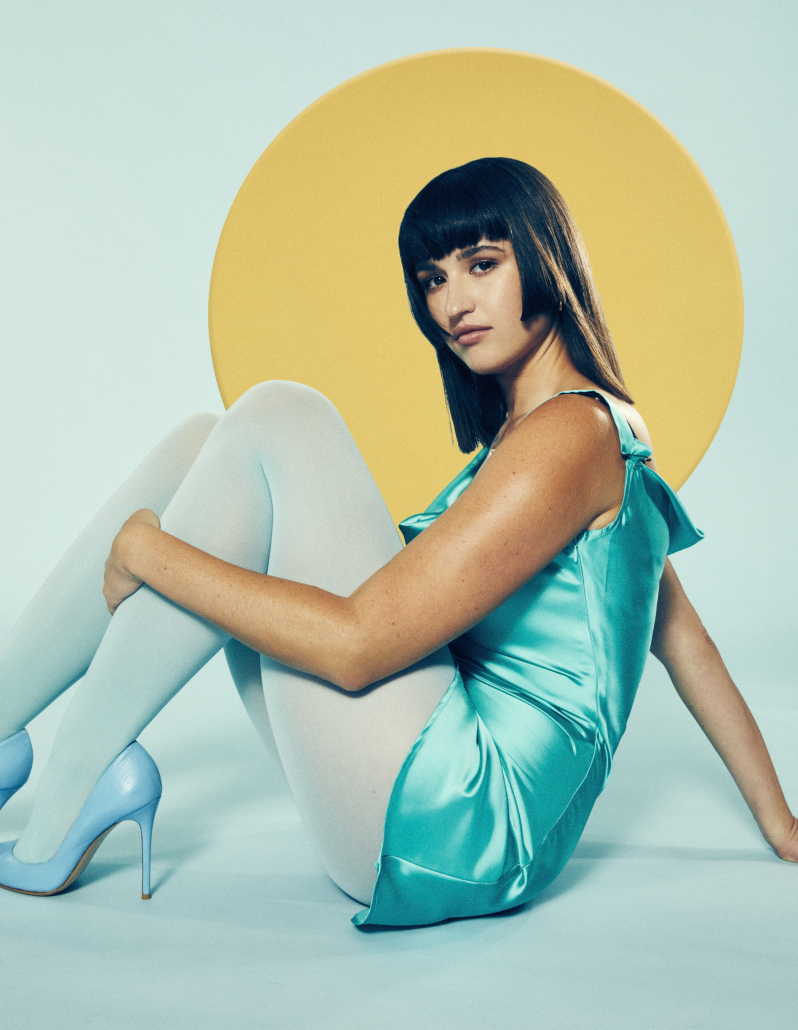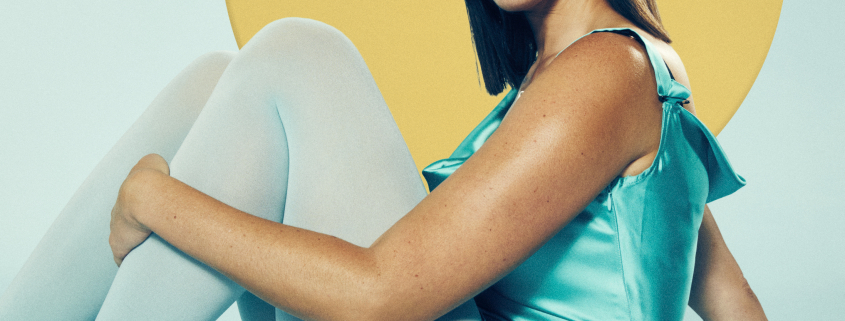Indie-pop singer Rozzi discusses musical journey

Take one look at Rozzi’s discography and you’ll find a treasure trove of anecdotes and personal details from her life. Every lyric is tinged with emotion and depth — from the moment Rosalind Elizabeth “Rozzi” Crane could sing, she knew there was nothing else she could imagine doing for the rest of her life.
“Music is the only thing that’s ever been my calling,” Rozzi said. “I just can’t remember a time that I didn’t feel obsessed with it.”
Rozzi’s first performance, singing “I’m Sensitive” by Jewel at her first grade talent show, was the moment that started it all.
“At that moment, I knew I wanted to chase that feeling forever and that was the beginning of my [musical] journey,” Rozzi said.
The 29-year-old indie-pop singer hails from San Francisco and grew up writing songs and attending vocal lessons. In 2009, she was accepted to USC’s Thornton School of Music as a member of the popular music program’s inaugural class.
“[At USC], I was spending all day, every day writing songs and playing shows on campus. I felt like I was on tour,” Rozzi said. “I thought, ‘Yes, [life] is finally beginning.’”
Rozzi’s time studying popular music performance and receiving lessons from associate professor and voice teacher Jeffrey Allen helped shape and improve her vocal and performance skills.
“Rozzi has a very sought-after quality in the vocal arts and many of the arts called chiaroscuro … It’s the bright and dark blending, where you have brilliance and depth working together,” Allen said. “Rozzi came to the studio with that quality and my objective was just to bring it out.”
Rozzi developed her songwriting skills after attending Thornton, noting that it was her vocals that were impacted the most from her classes.
“When I look back on it, I really think that the performance class and vocal lessons … changed my life as a singer,” Rozzi said. “I just learned how to sing. I would be assigned to learn a song … I would go home and practice these songs over and over again until my roommate Tatti … would lose her mind.”
Adam Levine, lead singer of American pop-rock band, Maroon 5, discovered Rozzi during her sophomore year. Phantom Planet band member Jacques Brautbar collaborated with Rozzi on music, then sent a video of Rozzi performing to Levine’s manager, who then sent it directly to Levine. Rozzi became the first artist signed to Levine’s label, 222 Records, in 2012.
Rozzi went from performing at small venues around campus to a flurry of tours and collaborations with other artists. She opened for Maroon 5 on their 2013-15 tours, performing with them at Madison Square Garden in 2015. In 2014, she collaborated with Kendrick Lamar on her song “Crazy Ass Bitch,” and the following year, she released two EPs, “Space” and “Time.”
While opening on tour and releasing new songs was a great experience for the artist, Rozzi lost track of her creative identity and wanted to find it after being dropped by the label in 2016.
“To have these very powerful, very successful men telling you what is going to work — and to have no other people in your life that you can analyze that with — was hard,” Rozzi wrote for Girlboss in 2018. “I didn’t always advocate for myself as a songwriter. It was hard for me to make creative decisions, as I didn’t know myself.”
Now, Rozzi is signed to S-Curve Records, with direct creative control over her music and public image. In 2018, she released the album “Bad Together,” under the label. The album focuses on a breakup she experienced earlier that year and is far more introspective than her past EPs.
“I think that on a substantial, basic level, I know myself better than I did before,” Rozzi said. “Writing ‘Bad Together’ really helped me connect with myself … listening to my gut, writing about my life, being vulnerable … I really felt that I could just be free.”
Although “Bad Together” centers around her first romance, Rozzi describes her newest single “Best Friend Song” as the most authentic love song she’s ever written. “Best Friend Song” is a lighthearted ode to her past college roommate and best friend Tatti, who had recently moved out.
“Moving out was a long time coming but still felt sudden,” Tatti said. “It was time, and the adult thing to do, so we tried to be adults about it — which meant crying for a minute and then continuing to hang out the same amount as when I lived there.”
“Best Friend Song” dropped Aug. 14 and was written with Charlie Snyder and Zak Waters.
“I remember being like, ‘Is it wrong of me to exploit [Snyder and Waters’] amazing talent to help me write down this song for my friend?’” Rozzi said. “It was a way for me to channel something that was really sad into a celebration.”
While the song’s bright, poppy sound is somewhat different from the moodier tone of “Bad Together,” it features Rozzi’s signature smoky vocals and personal lyrics.
“Rozzi’s always had a sound. That was her hallmark, her stamp … But now, it’s her songwriting [as well],” Allen said. “She has personalized her songs, personalized her output,”
Rozzi sings in “Best Friend Song:” “You were there when I cried over what’s his name again / you picked me up / I was drunk / still a mess at 3 a.m.”
“That is a very specific, real story that happened at USC,” Rozzi said. “I was crying in the Subway [shop] near Gateway at three in the morning and Tatti was tough-loving me. I remembered that night so vividly.”
For Rozzi, lyrics aren’t just written to accompany a melody; they’re a part of her healing process. Rozzi referenced one of her upcoming songs, “How’d You Learn to Lie Like That,” as an example of the emotional catharsis she derives from her music.
“I remember writing it and going to the studio with [songwriter] Andrew Hollander. He didn’t even know me [at the time],” Rozzi said. “And the opening line reads, ‘The last thing you told before you vanished was that this was so much more than sex.’”
At the time, she was less focused on divulging personal details to a songwriter she had never met and wanted to release the emotional burden she had undergone. But having such personal lyrics can become a burden as she revisits them during gigs.
“At the moment, it’s like therapy. It’s a way for me to work through something,” Rozzi said. “I … feel haunted by an emotion and writing the lyrics is like a séance. Once I’m not feeling that way anymore, it can be an anchor tethering me to an old version of myself. I need to find a way forward.”
For example, Rozzi explained, singing breakup songs like “Joshua Tree” and “Bad Together” while opening for Betty Who’s 2019 tour became emotionally draining.
“While on one hand [personal lyrics] are so liberating, it can be kind of awful when I’m trying to move on,” Rozzi said.
So if “Bad Together” was an evolution from the self-described “super green” singer she was in 2018, then Rozzi’s upcoming album marks a continuation of her growth as a singer and as a person.
”It’s really the first time in my life that I feel like I’ve made a record that is exactly what I meant to say,” Rozzi said.
For the making of the album, Rozzi reached out to British producer George Moore, who’s worked with YEBBA, Clean Bandit and Tor Miller, after getting enraptured by his work on YEBBA’s song, “Evergreen.”
“It’s been a relationship with a producer that I’ve wanted to have for years but never quite got,” Rozzi said. “He knows how to support my vocals without overpowering them. I really wanted this [album] to be very soulful, I wanted to hear my voice clearly without anything drowning it out.”
Rozzi noted that while her album doesn’t explicitly touch upon the current political climate or social justice, many of her personal experiences — and thus her songs — allude to ongoing social issues.
“I think artists have a responsibility to reflect the world,” Rozzi said. “I don’t have a lot of songs that are explicitly, blatantly about a social justice issue but my hope is that people can hear my point of view through the personal experiences [I sing about].”
She pointed toward one of her upcoming songs, “Mad Man,” as a prime example.
“It’s about me feeling suffocated by a man,” Rozzi said. “It really is a very personal, emotional [song] but I think that it reads like a feminist anthem.”
Haunted by emotions, moving on and finding herself — these are all epithets to discover in Rozzi’s discography because, after all, central to Rozzi’s musical journey is her desire to evolve.
“When you’re an artist, you want to reflect the person you are in that very moment, like a snapshot in time,” Rozzi said. “But I’m constantly evolving, constantly in a new phase of my life.”

